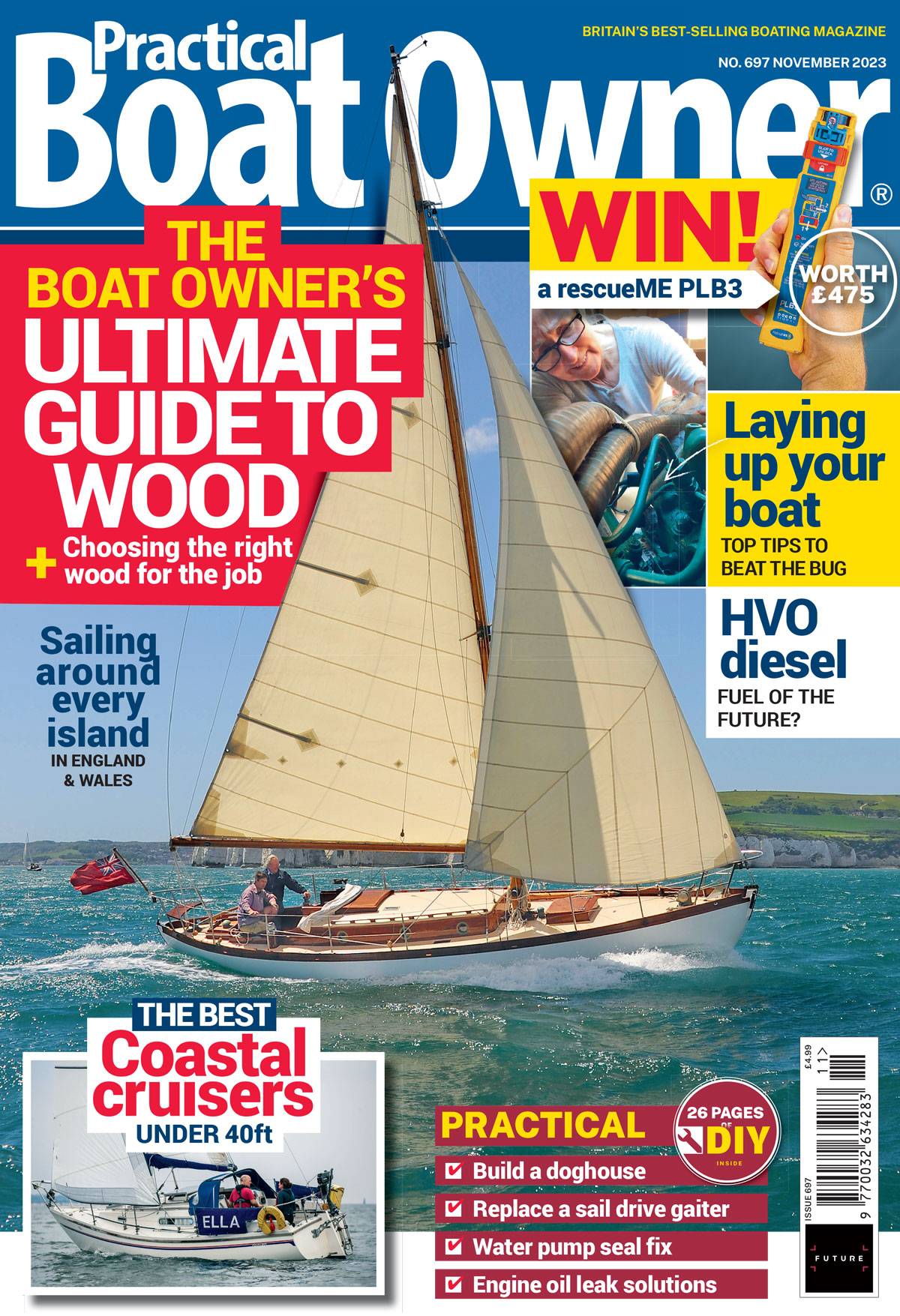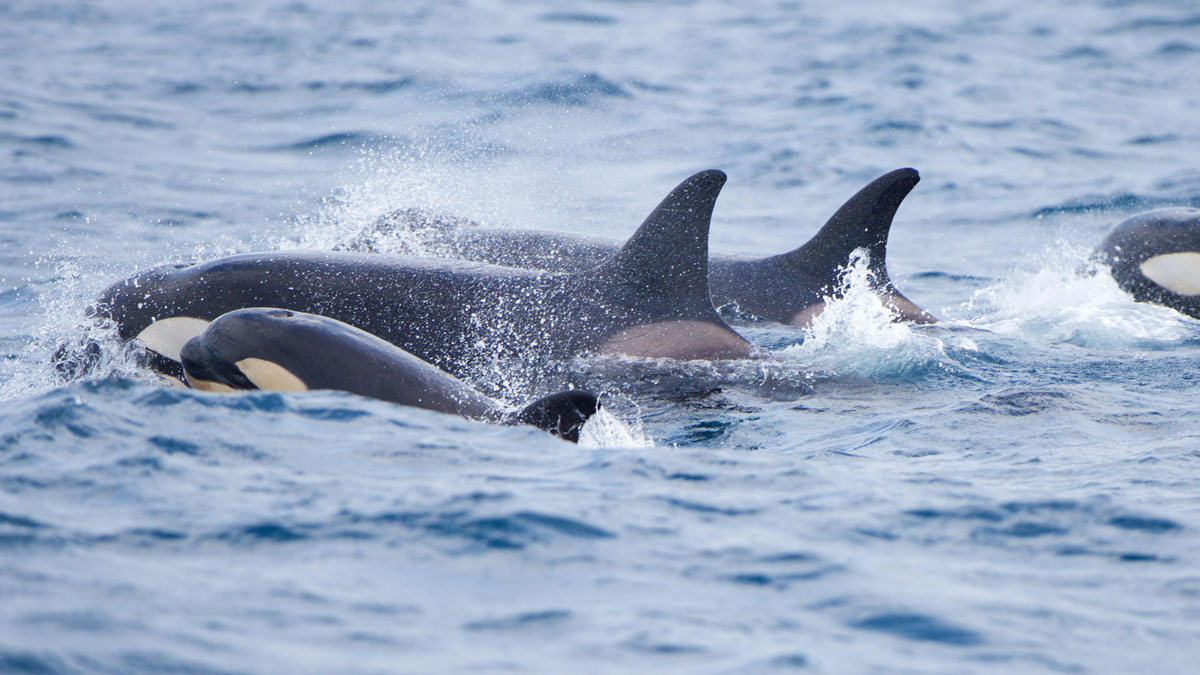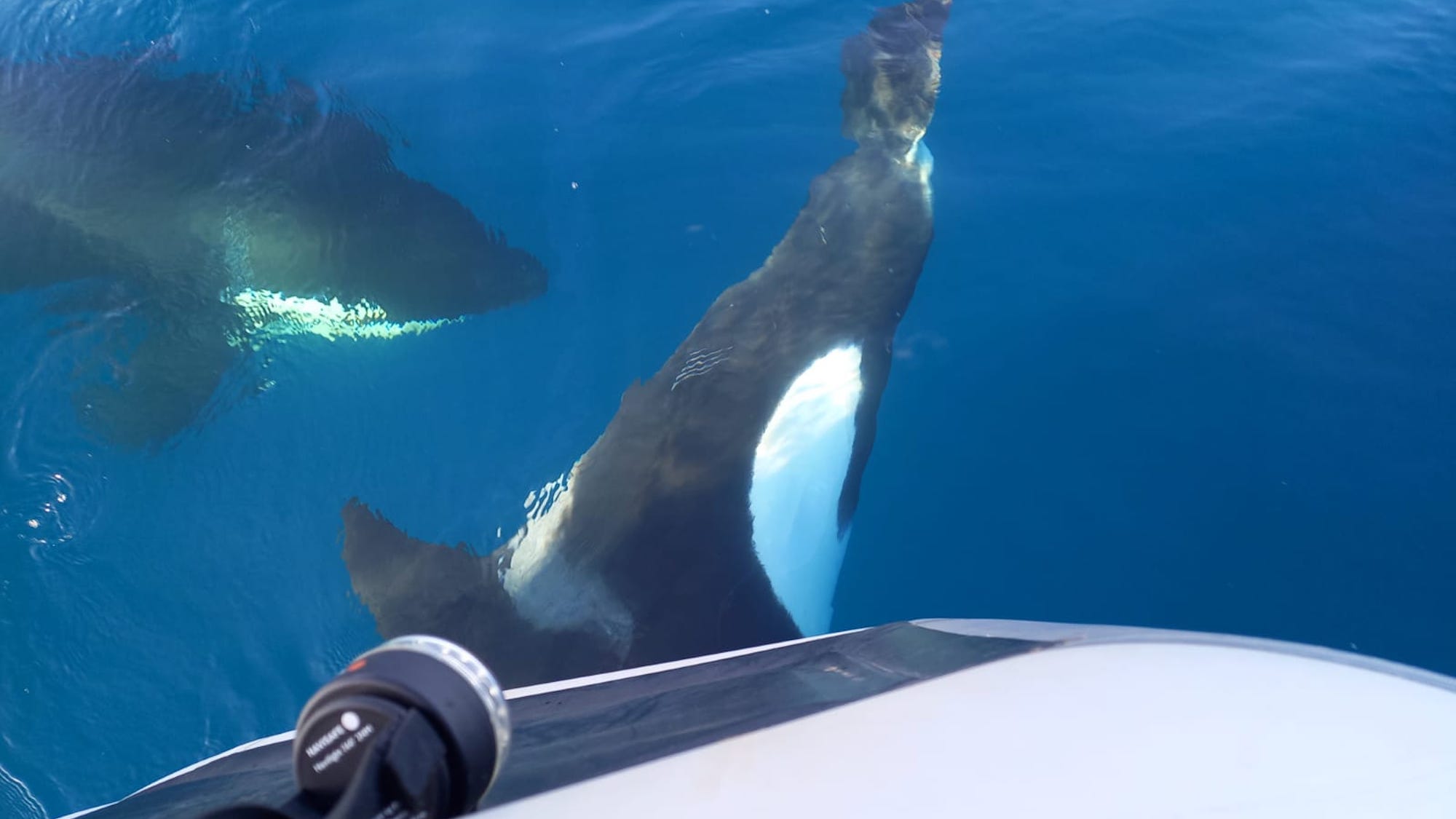Sea trials are scheduled to be held off the Portuguese coast to test a new acoustic deterrent device which aims to keep orcas away from boats
A new acoustic deterrent device is to be tested in the waters off Portugal to see if it will deter orcas from interacting with boats.
For years, the mainly juvenile cetaceans have been ‘playing’ with boats along the Iberian Peninsula, touching, pushing and pivoting on vessels.
In some cases this disruptive behaviour by the orcas has resulted in damage to the stern, mainly on the rudder; three boats have also been sunk as a result of the damage.
Portuguese and Spanish scientists at Grupo Trabajo Orca Atlantica (GTOA) have been studying the behaviour of the orcas since 2020, and are working in collaboration with Instituto da Conservação da Natureza e das Florestas (ICNF), the Portuguese government department responsible for Nature Conservation and Forests, and the Cruising Association, which is gathering data on orca interactions.

If the trial is successful, the orca acoustic deterrent device could be available for the 2024 sailing season. Credit: Zoe Barlow
The new acoustic deterrent device has been created by the Edinburgh-based GenusWave.
The Targeted Acoustic Startle Technology – known as TAST – is designed to trigger the instinctive startle reflex most animals have when they hear a particular sound.
This reflex, governed by the autonomic nervous system, induces an involuntary flight response, compelling targeted animals to flee the immediate area.
TAST was originally developed to deter seals from fishing nets, and has been modified to work on sea lions and orca.
In November 2021 and 2022, trials took place on fishing grounds in Kvænangen in north Norway to ascertain how effective TAST was in deterring orca from fishing boats.
Continues below…
‘Orcas are playing with the yachts’ – experts’ theories after sinking
Marine biologists say evidence suggests that orca interactions with yachts are ‘playful’ rather than aggressive, but at risk of becoming…
Sprinkling sand ‘deters orcas’ according to Cruising Association
Sprinkling sand around the rudder is now a recommended deterrence of orca – which have damaged more than 250 yachts…
Orcas left us rudderless! Yacht couple tell of terrifying ordeal off Spain
Zoe Barlow shares her experience of losing a rudder during sustained attacks by orcas whilst sailing her Sun Odyssey 40…
UK cetaceans: How to spot and identify whales and dolphins from your boat
One spring day when I was a teenager, we were sailing across Poole Bay as we had many times before.…
Scientists counted orca before, during, and after the fishing boat emitted a sound. Each phase lasted five minutes.
Satellite marked the animals to measure their response to the startling sounds, and the orca quickly returned to the site when the noise subsided.
The findings determined that the GenusWave signal resulted in:
- An 85% reduction in orca sightings on the fishing grounds during playback of the audio signals compared to before playback.
- A deterrent range that was predominately 0-50m from the sound source
- No harm to orca from the sound
- No lasting exclusion from the area once the sound was turned off
According to ICNF and GenusWave, if the orcas are still in the vicinity off the Portuguese coast it is anticipated sea trials will commence in mid-October.

An orca interacting with a yacht. Credit: Grupo de trabajo Orca Atlántica (GTOA)
If the trials proceed, skippers will be asked to contact the ICNF/GenusWave to alert them if orcas are spotted. Details on how to contact the ICNF/GenusWave will be released at www.theca.org.uk/orcas
According to GenusWave, if the trials are successful, it is anticipated that acoustic deterrent devices for yachts will be made available for the 2024 season.
Enjoyed reading Sea trials of new acoustic deterrent device to keep orcas at bay? 
A subscription to Practical Boat Owner magazine costs around 40% less than the cover price.
Print and digital editions are available through Magazines Direct – where you can also find the latest deals.
PBO is packed with information to help you get the most from boat ownership – whether sail or power.
-
-
-
- Take your DIY skills to the next level with trusted advice on boat maintenance and repairs
- Impartial in-depth gear reviews
- Practical cruising tips for making the most of your time afloat
-
-







